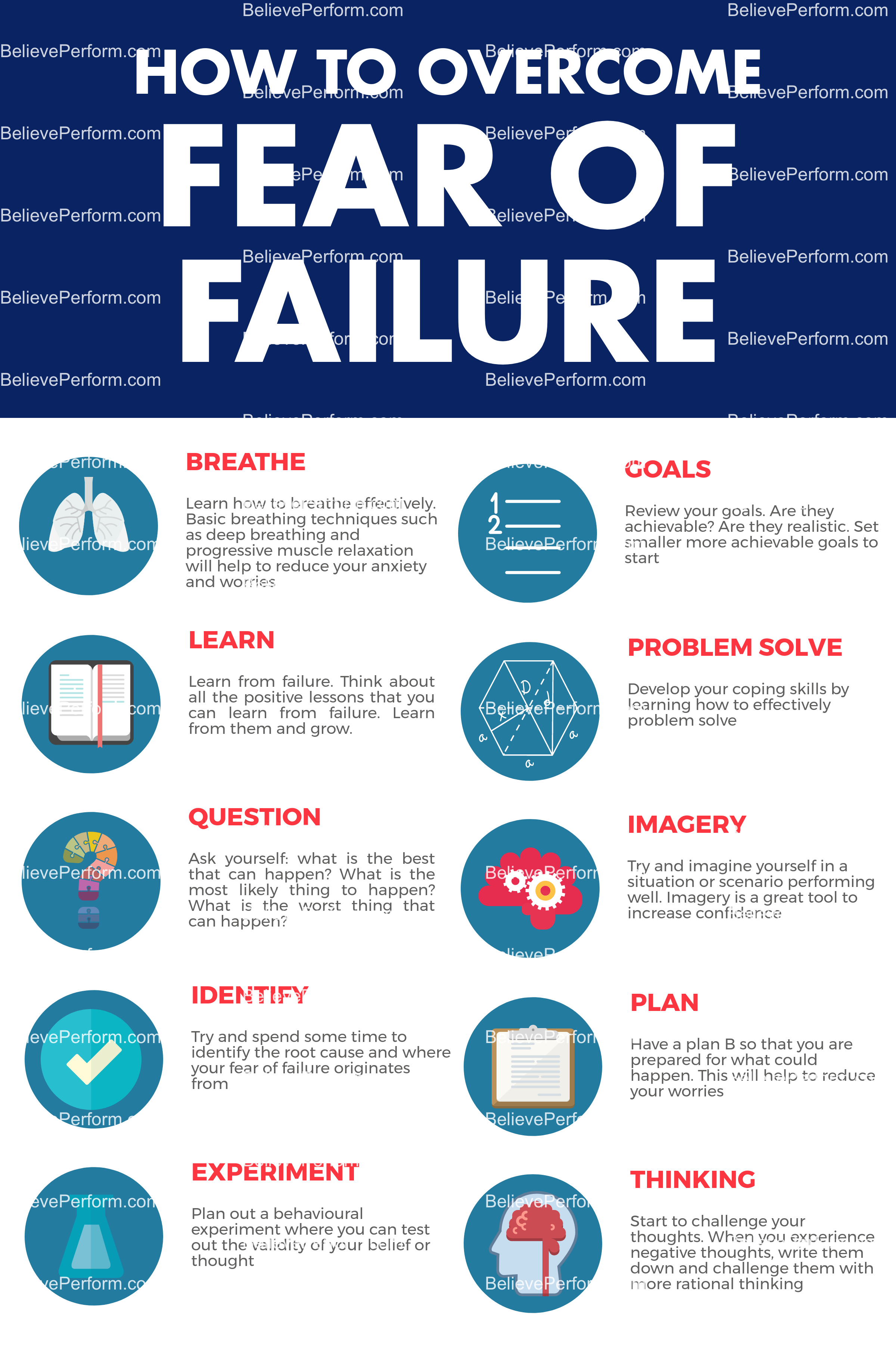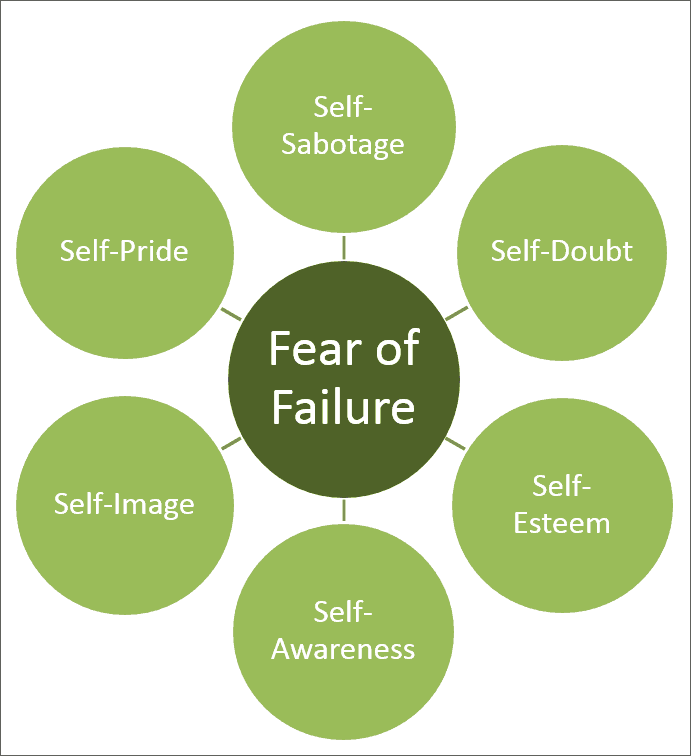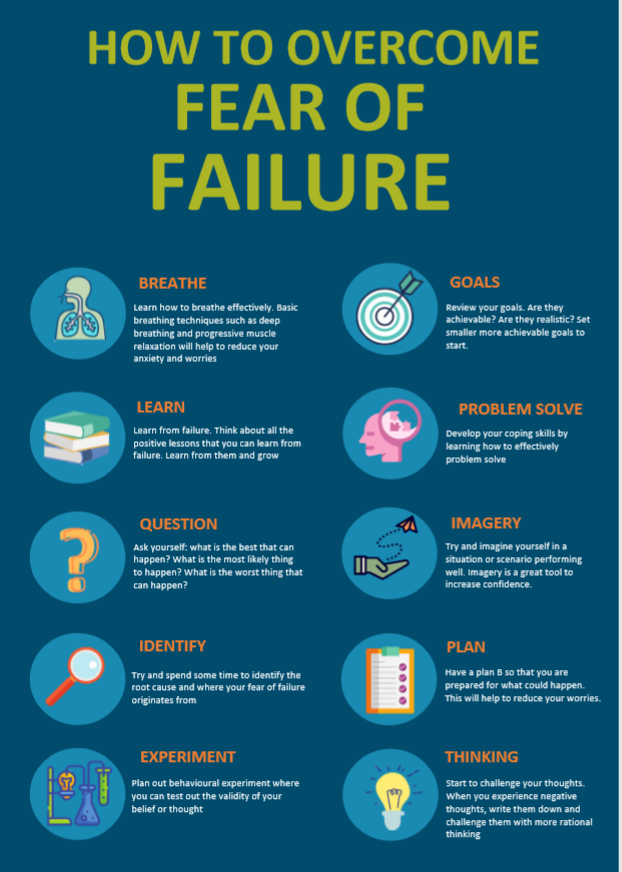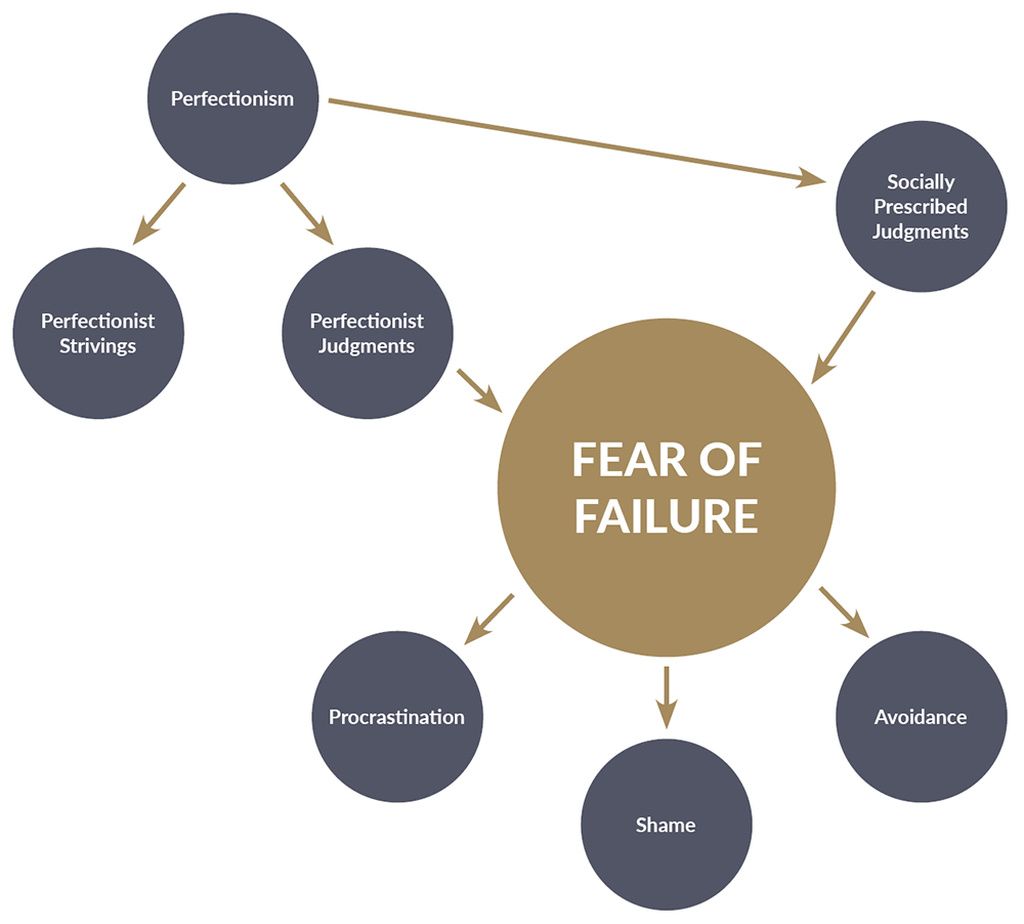How To Stop Being Afraid Of Failure

Ever feel paralyzed by the thought of things going wrong? That nagging fear of failure can hold you back from pursuing your dreams, starting a new project, or even taking a small risk. This article is for you – the dreamer, the beginner, the hesitant adventurer. We'll explore practical strategies to conquer that fear and embrace the possibility of success, and even more importantly, learn from inevitable setbacks.
Understanding the Fear of Failure
The fear of failure, also known as atychiphobia, isn't about hating losing. It's often rooted in deeper anxieties like fear of judgment, disappointment, or feeling inadequate. Recognizing the source of your fear is the first crucial step in overcoming it. Ask yourself: What am I truly afraid of?
This fear manifests in different ways. Some people procrastinate, avoiding tasks altogether. Others become perfectionists, setting impossibly high standards. Still others sabotage their own efforts, creating a self-fulfilling prophecy of failure.
Rewiring Your Mindset: Strategies for Overcoming Fear
Challenge Negative Thoughts: Negative self-talk fuels the fear of failure. Start by identifying these thoughts. Then, actively challenge them with more realistic and positive alternatives.
Reframe Failure as Learning: Instead of viewing failure as an end point, see it as a valuable learning opportunity. What can you learn from this experience? How can you improve next time? This reframing shifts your perspective from judgment to growth.
Set Realistic Goals: Unachievable goals inevitably lead to frustration and disappointment. Break down large goals into smaller, manageable steps. Celebrate small victories along the way to build momentum and confidence.
Focus on Effort, Not Outcome: Shift your focus from the end result to the process. Appreciate the effort you put in, regardless of the outcome. This reduces the pressure to succeed and makes the journey more enjoyable.
Embrace Imperfection: Striving for perfection is a recipe for anxiety. Accept that mistakes are inevitable. Allow yourself to be human and learn from your errors.
Practice Self-Compassion: Treat yourself with kindness and understanding when you make mistakes. Avoid self-criticism and negative self-talk. Remember that everyone fails at some point.
Take Small Risks: Start by taking small, calculated risks. As you experience success, your confidence will grow. Gradually increase the size and complexity of the risks you take.
Visualize Success: Imagine yourself succeeding in your goals. Visualize the positive feelings of accomplishment and confidence. This mental rehearsal can help reduce anxiety and increase motivation.
Seek Support: Talk to friends, family, or a therapist about your fears. Sharing your anxieties can help you gain perspective and find support. A supportive network can provide encouragement and motivation.
Actionable Techniques to Conquer Your Fears
The "What's the Worst That Could Happen?" Exercise: Identify your worst-case scenario. Then, realistically assess the likelihood of it happening and how you would cope if it did. Often, the worst-case scenario isn't as bad as you imagine.
The "10/10/10" Rule: Consider the consequences of your decision in 10 minutes, 10 months, and 10 years. This helps you gain perspective and avoid making impulsive decisions based on fear.
The "Failure Resume": Create a resume of your failures. This helps you recognize that failure is a normal part of life and that you have overcome setbacks in the past. It can also highlight areas where you can improve.
Exposure Therapy (for severe cases): This involves gradually exposing yourself to the feared situation in a safe and controlled environment. This can help you desensitize yourself to the fear and develop coping mechanisms.
Common Pitfalls to Avoid
Perfectionism: As mentioned before, perfectionism is a major obstacle. Let go of the need to be perfect and embrace the learning process.
Procrastination: Avoidance only prolongs the anxiety. Break down tasks into smaller steps and start with the easiest one.
Comparing Yourself to Others: Everyone's journey is unique. Focus on your own progress and avoid comparing yourself to others.
Dwelling on Past Failures: Learn from your mistakes, but don't dwell on them. Focus on the present and the future.
Isolating Yourself: Seek support from friends, family, or a therapist. Talking about your fears can help you gain perspective and find encouragement.
Turning Fear into Fuel: The Power of Resilience
Resilience is the ability to bounce back from adversity. It's a crucial skill for overcoming the fear of failure. Cultivate resilience by developing a growth mindset, practicing self-care, and building a strong support network.
Failure is not the opposite of success; it's a stepping stone. Embrace the challenges, learn from your mistakes, and keep moving forward. Remember that every successful person has faced setbacks along the way.
Real-Life Examples of Overcoming Fear of Failure
Think of J.K. Rowling. Before she became a global phenomenon, she faced numerous rejections for her Harry Potter manuscript. Her persistence ultimately led to one of the most successful book series of all time.
Consider Thomas Edison. He famously failed thousands of times before inventing the light bulb. He viewed each failure as a step closer to success.
Even Michael Jordan, arguably the greatest basketball player of all time, faced countless rejections and setbacks throughout his career. He used those experiences to fuel his determination and drive.
Practical Exercises to Build Confidence
Daily Affirmations: Start each day with positive affirmations. This can help boost your self-esteem and reduce negative self-talk. Examples include: "I am capable," "I am resilient," and "I am worthy of success."
Gratitude Journaling: Write down things you are grateful for each day. This helps you focus on the positive aspects of your life and appreciate your accomplishments.
Self-Care Activities: Engage in activities that bring you joy and relaxation. This can help reduce stress and improve your overall well-being.
The Long-Term Benefits of Conquering Fear
Overcoming the fear of failure unlocks a world of possibilities. You'll be more willing to take risks, pursue your dreams, and live a more fulfilling life. It leads to increased confidence, resilience, and overall well-being.
By embracing failure as a learning opportunity, you'll develop a growth mindset and become more adaptable to change. This will equip you to navigate the challenges of life with greater ease and confidence.
Checklist: 5 Steps to Start Today
- Identify your specific fears related to failure.
- Challenge negative thoughts with realistic alternatives.
- Set small, achievable goals.
- Focus on effort, not outcome.
- Practice self-compassion.
Summary
The fear of failure is a common and often debilitating emotion. However, it's not insurmountable. By understanding the roots of your fear, rewiring your mindset, and practicing actionable techniques, you can conquer your anxieties and embrace the possibility of success.
Remember to challenge negative thoughts, reframe failure as learning, set realistic goals, and focus on effort. Embrace imperfection, practice self-compassion, and seek support from others.
By taking small risks, visualizing success, and building resilience, you can transform your fear into fuel and achieve your dreams.
Start small, be patient with yourself, and celebrate your progress along the way. The journey of overcoming fear is a marathon, not a sprint.
Ready to Take the First Step?
Don't let the fear of failure hold you back any longer. Choose one strategy from this article and commit to practicing it this week. You might be surprised at how quickly you can begin to transform your mindset and embrace the possibilities that lie ahead. What small step will you take today?















:max_bytes(150000):strip_icc()/what-is-the-fear-of-failure-5176202-FINAL-d0682f5750d74a57a912537424b76a96.png)


